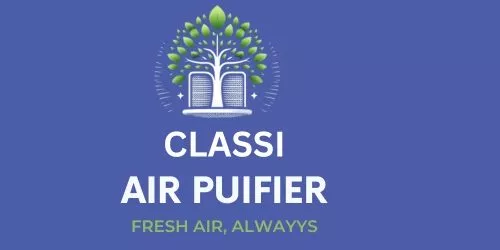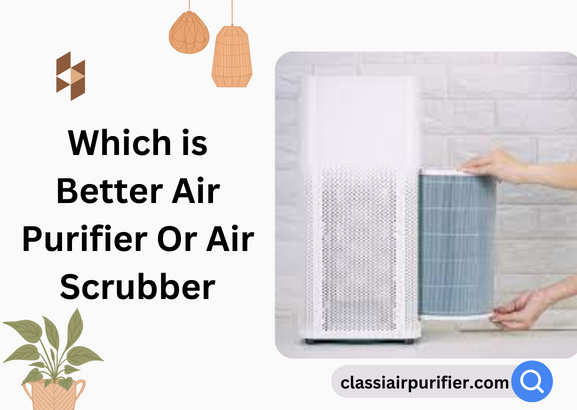Prevent air filters from clogging by regular cleaning and maintenance. Clean or replace filters every 1-3 months.
Proper maintenance of air filters is crucial for maintaining indoor air quality. Over time, air filters can become clogged with dust, dirt, and other particles, leading to reduced airflow and decreased efficiency. Regular cleaning or replacement of air filters is necessary to prevent these issues and ensure that the air in your home or office remains clean and healthy.
By sticking to a regular maintenance schedule, you can also extend the life of your HVAC system and reduce energy costs. We will explore the importance of maintaining clean air filters and provide tips for preventing them from becoming clogged.
Importance Of Air Filters
Air filters play a vital role in maintaining the quality of the air we breathe indoors. They are an essential component of HVAC (Heating, Ventilation, and Air Conditioning) systems, ensuring that the air circulated in our homes and workplaces is clean and free from harmful particles, pollutants, and allergens. The importance of air filters can be understood by exploring two key aspects: the health benefits they provide and their role in ensuring the longevity of HVAC systems.
Health Benefits
Air filters have significant health benefits, especially for individuals prone to allergies, respiratory problems, and asthma. They capture and trap various airborne particles, such as dust, pollen, pet dander, mold spores, and even bacteria and viruses, preventing them from circulating in the indoor air. By removing these harmful contaminants, air filters help reduce the risk of respiratory issues and allergic reactions.
Longevity Of Hvac Systems
Air filters are not only beneficial for our health but also crucial for maintaining the longevity and efficiency of HVAC systems. These systems rely on proper airflow to function optimally, and clogged or dirty filters can impede the airflow, requiring the HVAC system to work harder. This extra strain can lead to increased energy consumption, higher utility bills, and even premature wear and tear on the system components.
By regularly replacing or cleaning air filters, you can ensure that the airflow remains unrestricted, extending the lifespan of your HVAC system. This simple maintenance task also helps in preventing potential breakdowns and costly repairs, as it reduces the chances of dust and debris accumulating in the system.
Furthermore, air filters also contribute to maintaining good air quality within the HVAC system itself. A clean filter prevents the buildup of dust and dirt on sensitive components like the evaporator coils and blower motor, reducing the risk of damage and improving the overall efficiency of the system.
In conclusion, air filters are of utmost importance when it comes to both our health and the longevity of HVAC systems. Regularly replacing or cleaning air filters can provide numerous health benefits by removing harmful particles from the air we breathe. Additionally, it ensures proper airflow, reduces energy consumption, extends the lifespan of HVAC systems, and prevents expensive repairs. Thus, prioritizing air filter maintenance is essential for a healthy and efficient indoor environment.
Common Air Filter Problems
Preventing air filter problems is crucial to maintain a healthy indoor environment. Regularly changing air filters and scheduling professional HVAC maintenance can help prevent common issues such as clogging, poor air quality, and decreased system efficiency. By staying proactive, you can ensure that your air filters remain clean and effective in providing clean, breathable air for your home or business.
Clogging
A common air filter problem is clogging. Over time, the filter accumulates dust, dirt, and other airborne particles, reducing its efficiency. This restricts the airflow and puts stress on the HVAC system, leading to inefficient operation and possible damage. Regular maintenance and replacing filters can help prevent this issue.
Poor Indoor Air Quality
Another issue associated with air filters is poor indoor air quality. When filters are clogged or not replaced regularly, they become less effective in removing contaminants from the air. This can compromise the air quality inside the building, leading to health issues and discomfort for the occupants. Routine inspection and timely filter changes are critical for maintaining good indoor air quality.
Signs Of A Dirty Air Filter
An air filter plays a crucial role in maintaining the air quality and efficiency of your HVAC system. Over time, air filters can become clogged with dust, dirt, and other particles, leading to a range of issues. Recognizing the signs of a dirty air filter is essential for ensuring the proper functioning of your HVAC system and the overall comfort of your living space.
Increased Energy Bills
A dirty air filter can cause your HVAC system to work harder to maintain the desired temperature, resulting in increased energy consumption. When the system operates under strain due to a clogged filter, it requires more power to circulate the air, leading to higher energy bills.
Noticeable Dust Buildup
If you observe a buildup of dust around your home, particularly on surfaces near air vents, it could indicate a dirty air filter. When the filter is clogged, it is unable to effectively trap airborne particles, leading to increased dust accumulation in your living space.
How Often To Replace Air Filters
Regularly replacing air filters is an essential part of maintaining a clean and healthy indoor environment. Not only do air filters help to improve the quality of the air you breathe, but they also help to keep your HVAC system running efficiently by preventing dust and debris from clogging the system. However, many homeowners are unsure about how often they should be replacing their air filters. In this article, we will explore the recommended maintenance schedule and the various factors that can influence the frequency of air filter replacement.
Regular Maintenance Schedule
Following a regular maintenance schedule is key to ensuring that your air filters are replaced at the appropriate intervals. While the exact timing can vary depending on several factors, a general guideline is to replace your air filters every 1 to 3 months. This timeframe is ideal for most residential setups and takes into account the average usage and air quality.
However, it’s important to note that this is just a rough estimate and your specific situation may require more frequent or less frequent filter replacements. It’s always best to consult your HVAC system’s manufacturer guidelines or seek advice from a professional technician to determine the most suitable maintenance schedule for your specific setup.
Factors Influencing Replacement Frequency
Several factors can influence how often you should replace your air filters. By understanding these factors, you can make more informed decisions regarding your HVAC system’s maintenance needs.
| Factors | Replacement Frequency |
|---|---|
| Pet Ownership | If you have pets, especially those that shed frequently, you may need to replace your air filters more often, such as every 1 to 2 months. |
| Allergies or Respiratory Issues | If you or any members of your household suffer from allergies or respiratory conditions, it is advisable to replace air filters more frequently, such as every 1 to 2 months. |
| Environmental Factors | If you live in an area with high levels of dust, pollutants, or construction activities, you may need to replace your air filters more frequently, such as every 1 to 2 months. |
| Usage Patterns | If your HVAC system is running for extended periods or frequently, you may need to replace your air filters more often than the recommended timeframe. |
| Filter Type | The type of air filter you use can also impact the replacement frequency. High-quality filters generally have a longer lifespan, while cheaper filters may need more frequent replacements. |
By considering these factors and keeping a close eye on the condition of your air filters, you can ensure that they are replaced at the right time, promoting optimal indoor air quality and the longevity of your HVAC system.
Types Of Air Filters
When it comes to improving indoor air quality, selecting the right type of air filter is crucial. There are various types of air filters available in the market, each with unique features and functionalities. Understanding the differences between these filters is essential in choosing the most suitable option for your home or office.
Fiberglass Filters
Fiberglass air filters are the most commonly used filters due to their affordability. They have a basic design and can capture large particles like dust and debris.
Hepa Filters
HEPA filters are known for their high efficiency in removing small particles, including allergens and pollutants. These filters are ideal for households with pets or individuals with allergies.
Diy Air Filter Replacement
When it’s time to replace your air filter, you can easily tackle the task with a DIY Air Filter Replacement. By following the steps below, you can ensure proper air quality in your home and extend the life of your HVAC system.
Safety Precautions
Before starting the replacement process, make sure to turn off your HVAC system to avoid any accidents. Additionally, wear protective gloves and a mask to prevent exposure to dust and debris.
Step-by-step Guide
- Locate the air filter housing within your HVAC system.
- Take note of the filter size needed for replacement.
- Remove the existing air filter carefully to avoid spreading dirt.
- Clean the filter housing area using a damp cloth.
- Insert the new filter into the housing with the arrow pointing in the direction of airflow.
- Secure the filter in place and close the housing door.
- Turn on your HVAC system and test for proper airflow.
Professional Air Filter Services
Air filters are an essential component of HVAC systems, ensuring clean and healthy indoor air quality. While regular maintenance of air filters is important, sometimes it’s best to leave the task in the hands of professionals. At Prevent Air Filters, we provide top-notch professional air filter services that guarantee optimal performance and longevity of your filters.
Benefits Of Hiring Experts
When it comes to air filter services, relying on experts offers several advantages:
- Expertise: Professionals have extensive knowledge and experience in dealing with various types of air filters.
- Efficiency: Hiring experts ensures that the maintenance or replacement of your air filters is done quickly and accurately.
- Quality Workmanship: Professionals use specialized equipment and techniques to provide high-quality air filter services.
- Improved Indoor Air Quality: With experts taking care of your air filters, you can breathe clean and pollutant-free air.
Cost Considerations
While some may argue that hiring professionals for air filter services adds to the overall cost, it’s important to consider the long-term benefits:
- Extended Lifespan: Properly maintained air filters have a longer lifespan, reducing the frequency of replacements and saving you money in the long run.
- Energy Efficiency: Clean air filters enable HVAC systems to work more efficiently, resulting in energy savings and lower utility bills.
- Preventive Measures: Professionals can identify potential issues early on, preventing costly repairs or breakdowns in the future.
Investing in professional air filter services not only ensures optimal performance but also saves you money in the long term. Protect your health, prolong the lifespan of your filters, and enjoy improved indoor air quality by entrusting your air filter maintenance and replacements to Prevent Air Filters’ team of experts.
Conclusion And Maintenance Tips
Summary Of Key Points
Regularly replacing and maintaining air filters is crucial for ensuring clean indoor air quality and the efficient operation of your HVAC system. Dirty air filters can lead to decreased airflow, reduced energy efficiency, and potential damage to the system. Choosing the right air filters and following proper maintenance schedules can significantly improve the performance and longevity of your HVAC system, ultimately leading to cost savings and improved air quality.
Tips For Maintaining Clean Air Filters
- Inspect air filters monthly and replace them at least every 90 days. Consider more frequent replacement if you have pets or live in a dusty environment.
- Use high-efficiency particulate air (HEPA) filters for enhanced filtration of airborne particles, especially for individuals with allergies or respiratory conditions.
- Follow manufacturer’s guidelines for filter replacement and maintenance to ensure optimal functionality of your HVAC system.
- Regularly clean and dust the surrounding area of the air filter to prevent debris from entering the system and accumulating on the filter.
- Consider scheduling professional HVAC maintenance to have air filters checked and replaced by experienced technicians.
Frequently Asked Questions On Prevent Air Filters
Why Is It Important To Prevent Air Filter Clogs?
Preventing air filter clogs ensures efficient HVAC system operation, improved air quality, energy savings, and prolonged system lifespan.
How Frequently Should Air Filters Be Replaced?
It is recommended to replace air filters every 1-3 months, depending on usage, to maintain optimal indoor air quality.
Can Clogged Air Filters Impact Energy Efficiency?
Yes, clogged filters restrict airflow, causing the HVAC system to work harder, leading to increased energy consumption and higher bills.
What Are The Signs Of A Clogged Air Filter?
Signs include reduced airflow, dust buildup, strange odors, and increased energy consumption. Regular checks are crucial for early detection.
Conclusion
Keeping your air filters clean is crucial for maintaining indoor air quality and optimizing the performance of your HVAC system. Regularly checking and changing your filters can prevent dust, allergens, and pollutants from circulating in your home, benefiting both your health and your system’s efficiency.
By following these simple steps, you can ensure that your air filters are working effectively, providing you with clean and fresh air to breathe. Remember to schedule regular filter maintenance to keep your indoor air clean and healthy.


